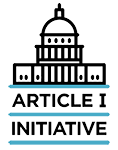Despite the Constitution vesting “[a]ll legislative Powers herein granted” in Congress, today lawmaking by administrative agencies dwarfs lawmaking by Congress by any measure of either quantity or significance. Much congressional lawmaking consists of broad instructions to administrative agencies to determine the norms that govern people’s conduct. Some of those delegations made prior to 1983, many of which are still on the books, were possibly made on the assumption that Congress retained a legislative veto over agency actions, but the Supreme Court held such legislative vetoes to be unconstitutional because Congress can only overrule agencies with a bill that passes both Houses of Congress and that is presented to the President for his signature or veto. In 1996, the Congressional Review Act provided a mechanism for legislative cancellation of rules, and the statute has roared to life in the Trump Administration after being used only once in its first two decades. The House of Representatives has recently passed a bill called the REINS Act, which would treat agency regulations affecting the economy by more than $100,000,000 as proposals that would only go into effect if passed using fast-track procedures by the House of Representatives and the Senate. The REINS Act presents major constitutional questions in its present form because it does not require that agency regulations approved by the House and the Senate be presented to the President. This panel will discuss the role of Congress in creating and controlling the administrative state.
- Hon. C. Boyden Gray, Founding Partner, Boyden Gray & Associates
- Prof. Peter Strauss, Betts Professor of Law, Columbia Law School
- Prof. Chris Walker, Associate Professor of Law, Ohio State University, Moritz College of Law
- Prof. Keith Whittington, William Nelson Cromwell Professor of Politics, Princeton University
- Moderator: Hon. Diane Sykes, United States Court of Appeals, Seventh Circuit



